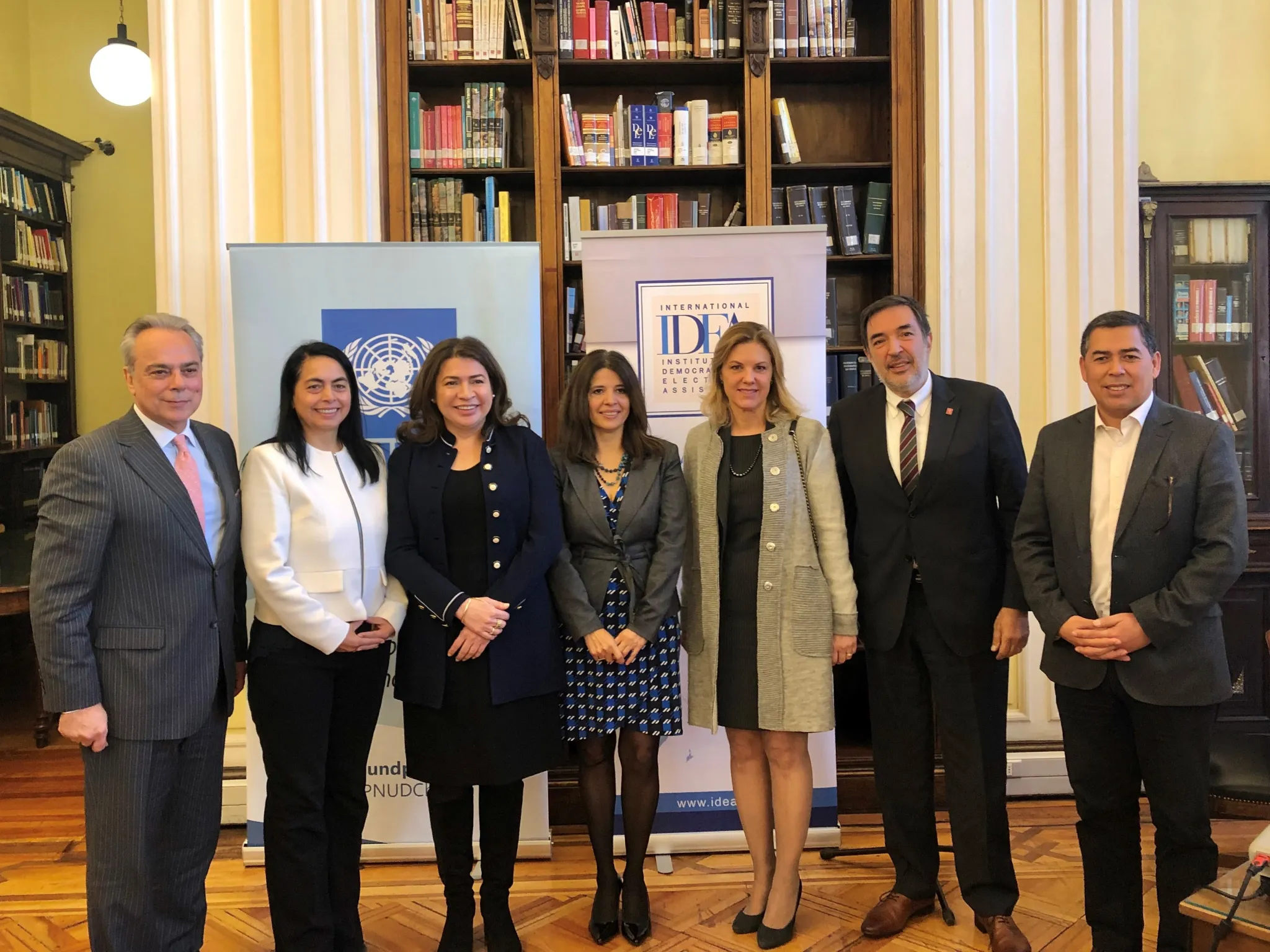
International IDEA and the UNDP created an important forum on 3 June 2019 for discussing gender quotas in Chile by holding the seminar “Law on gender quotas in the elections for regional governors and council members, mayors, and local council members.” The event was held in the Reading Room of the Chamber of Deputies in the former National Congress.
Este artículo está disponible en Español.
That event—which included the participation of Loreto Carvajal, Vice President of the Chamber of Deputies; Claudia Mojica, Resident Representative of the UNDP in Chile; Marcela Ríos, Assistant Resident Representative of the UNDP in Chile; Silvia Rucks, Resident Coordinator of the United Nations System in Chile; Pilar Tello, gender expert at International IDEA; and Dr Daniel Zovatto, Director for Latin America and the Caribbean of International IDEA—featured discussion of the proposed law on gender quotas in the elections for governors, regional council members, mayors, and local council members that is currently before the national Congress, and of the operation of quota mechanisms in Chile and elsewhere in Latin America.
Legislator Loreto Carvajal emphasized that the bill under discussion is aligned with the Sustainable Development Goals being promoted by the United Nations, which seek to put an end to all forms of discrimination against women and to make progress in their effective empowerment so as to hold leadership positions in all areas of the country’s political and social life. Along those same lines, Marcela Ríos said that a change in the election law for electing local and regional authorities will open the way to make progress on goal 5 of the 2030 Agenda for Sustainable Development (Gender Equality), which seeks to ensure the full and effective participation of women and equal opportunities for leadership at all decision-making levels in political, economic, and public life.
Pilar Tello shared Latin America’s experience in this area, indicating that the percentage of women elected has increased in those countries where affirmative action measures have been adopted in relation to the electoral lists. Parity, i.e. having 50 per cent women candidates, combined with alternation of men and women on the lists, appears to be the most effective mechanism for having a larger number of women authorities or representatives. A democracy in which women are in the minority in decision-making spaces is an incomplete democracy that should be strengthened, thus the debate on this matter is fundamental in Chile, she added.
The Regional Director of International IDEA closed the event. In his closing remarks he expressed gratitude for and emphasized the special value of the current cooperation that exists with UNDP Chile, as well as with the Chilean Congress and the Electoral Service of Chile (SERVEL: Servicio Electoral de Chile), whose objective is to work with synergy to strengthen gender equity in the terms of sustainable development goal 5. He also said that for International IDEA this issue, globally and regionally, is a strategic priority. He concluded underscoring that while the Region has made major gains in the last two decades, in large measure thanks to the use of quota laws, much remains to be done. In this regard, he recommended that to continue making progress and ensuring that the gains made in gender equity are sustainable, in addition to a strong political commitment and new and effective legislative measures, a profound cultural change is essential.
The event also included the participation of representatives of political parties and civil society; legislator Leonardo Soto; and the President of the SERVEL, Patricio Santamaría. It was held in the context of ongoing cooperation between International IDEA and the UNDP to carry out activities for dialogue and analysis on strengthening democracy.



